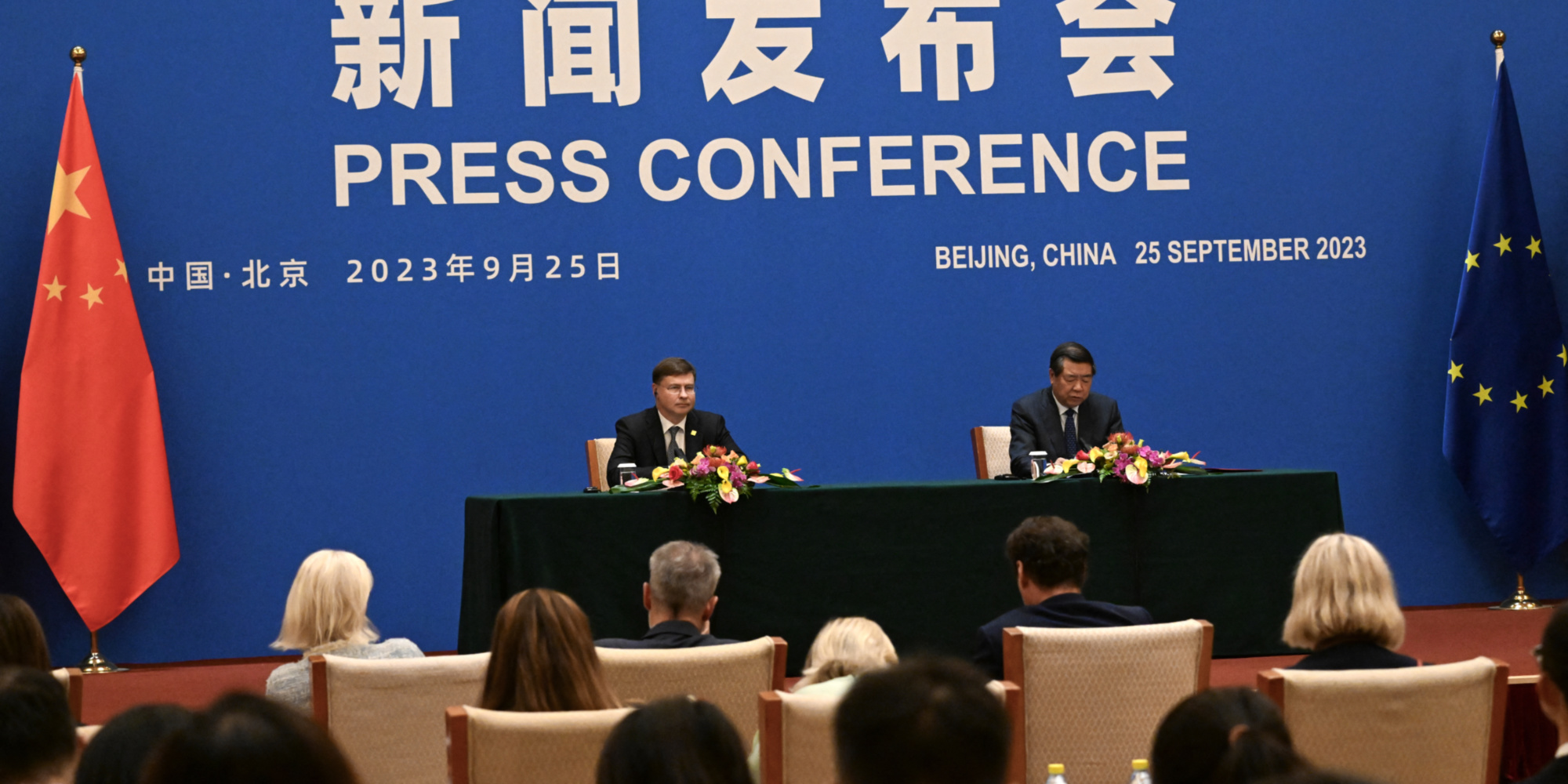Europe 1 with AFP // Photo credits: Pedro PARDO / AFP 18:18 p.m., September 25, 2023
Chinese Vice Premier He Lifeng and EU Trade Commissioner Valdis Dombrovskis held talks on Monday (September 25th) about an EU investigation into car subsidies.Beijing and Brussels will resume regular exchanges on macroeconomic issues, the European Commissioner for Trade said on Monday, with the EU concerned about "unequal market access" and Beijing about the European investigation into Chinese subsidies for electric cars. "We agreed to resume regular exchanges to discuss macroeconomic issues, to relaunch economic and financial dialogue. And the macroeconomic dialogue will be important in this regard and we look forward to these dialogues in the coming months," EU Trade Commissioner Valdis Dombrovskis told a joint press conference with Chinese Vice Premier He Lifeng after talks in Beijing.
>> READ ALSO - China: in Beijing, Bruno Le Maire makes soft eyes to Chinese investors
The concern of European companies
"European companies are worried about the direction China is taking," warned the commissioner earlier, and "many of them are questioning their place in this country", due to a "more politicised business environment".
"This has resulted in less transparency, unequal access to public procurement, discrimination on security standards and requirements, as well as requirements for data localisation and transfer," he added. Valdis Dombrovskis, who was visiting for four days on the occasion of the Economic and Trade Dialogue between China and the European Union (EU), was speaking to students from the prestigious Tsinghua University in Beijing.
The European Commissioner cited the recently approved national security laws in China. "The new foreign relations law and the new version of the anti-espionage law are of great concern to our business community," he said, because "their ambiguity leaves too much room for interpretation."
"Lose-lose"
For his part, Chinese Vice Premier He Lifeng reaffirmed Beijing's "strong dissatisfaction" with the EU investigation announced on September 13 into China's subsidies for electric cars.
"China once again expresses its great concern and deep dissatisfaction with the EU's plan to launch an anti-subsidy investigation into Chinese electric vehicles," He Lifeng said at a joint press conference with Valdis Dombrovskis in Beijing. Commissioner Dombrovskis also assured that China remains attractive for investment by European companies. "Both the EU and China have benefited enormously from their openness to the world", "which is why I will continue to defend openness as a winning strategy in the long run".
But now, European companies are "wondering whether what many saw as a 'win-win' relationship in recent decades could become a 'lose-lose' dynamic in the coming years." Asked about this at a regular press briefing, Wang Wenbin, spokesman for the Chinese Foreign Ministry, assured that China will continue to "protect the legitimate rights and interests of individuals and organizations".
"We will continue to provide a market-oriented, law-compliant and international business environment for companies from around the world that legally operate in China," he added. "China is not a source of risks (for these companies), but rather a firm force to prevent and defuse them."
Ukraine
The European Commissioner also warned China on another issue that penalizes its image: the conflict in Ukraine. Beijing's refusal to condemn the Russian invasion "harms the image" of China, he warned. "There is (...) a reputational risk for China" and this posture "damages the country's image, not only vis-à-vis European consumers, but also companies".
"Territorial integrity has always been a key principle for China in international diplomacy" and "China has always advocated for each country to be free to choose its own development path," he said. "So it is very difficult for us to understand China's position on Russia's war against Ukraine, as it violates China's fundamental principles," he said. China and Russia see each other as strategic allies, with the two countries frequently touting their "boundless" partnership and economic and military cooperation. They have grown even closer since the start of the Russian invasion of Ukraine in February 2022, which China refuses to condemn.

